Coffee remains one of the most popular beverages worldwide, celebrated for its flavor and stimulating properties. Scientific research suggests that the timing of coffee consumption may play a role in optimizing alertness, metabolism, and overall health. Multiple factors—including circadian rhythms, cortisol levels, genetic sensitivity, and lifestyle habits—interact with caffeine to influence its effects. Aligning coffee intake with your body clock may helptransform daily coffee consumption into a tool for improved productivity, sleep regulation, and metabolic support.
Understanding Your Body Clock for Coffee Timing
The human body operates on a circadian rhythm that regulates hormone release, energy levels, and cognitive function. This internal clock is governed by the suprachiasmatic nucleus (SCN) in the hypothalamus and is primarily influenced by light exposure, sleep-wake cycles, and behavioral patterns.
How Cortisol Levels Influence Coffee’s Effects
Cortisol, often called the "stress hormone," naturally peaks 30–45 minutes after waking in a cycle known as the Cortisol Awakening Response (CAR). Consuming caffeine during this cortisol peak may blunt the natural cortisol response and reduce caffeine’s perceived effectiveness.
Delaying coffee intake by 60–90 minutes after waking may allow cortisol levels to naturally decline, enabling caffeine to act more effectively as a stimulant without overlapping with the hormonal peak.
Why Waiting May Optimize Benefits
Allowing cortisol to stabilize may enhance caffeine’s actions on the central nervous system, primarily by blocking adenosine receptors and modulating dopamine release, leading to improved wakefulness, mood, and metabolic regulation.
Identifying Your Personal Energy Dips
Many individuals experience mid-morning or mid-afternoon declines in alertness due to natural variations in cortisol, melatonin, and adenosine accumulation. Tracking personal energy fluctuations through observation or wearable technology may help identify optimal coffee timing to boost productivity without overstimulation.
Pinpointing the Best Time to Drink Coffee in the Morning
Timing your first cup of coffee may significantly influence cognitive performance, metabolic activity, and long-term sleep quality by synchronizing caffeine intake with your natural hormonal rhythms.
The Ideal Window for Your First Cup of Coffee
For many individuals, the optimal time for consuming their first coffee may fall between 9:00 a.m. and 11:00 a.m. This window typically follows the early morning cortisol peak and allows caffeine to exert its effects during a natural decline in cortisol, enhancing alertness, reaction time, and mental clarity.
Caffeine’s primary mechanism of action involves antagonism of adenosine receptors, particularly A1 and A2A, resulting in heightened neural activity and reduced fatigue.
Maximizing Morning Alertness With Strategic Coffee Intake
Strategically timing coffee around minor post-breakfast energy dips may further enhance focus, memory consolidation, and sustained attention throughout the morning.
Professionals and students who align caffeine consumption with these patterns may experience improved cognitive stability and performance during demanding work or academic tasks.
Considering Coffee Timing for Morning Health Benefits
In addition to cognitive benefits, properly timed morning coffee may support metabolic functions such as thermogenesis, lipid oxidation, and glucose utilization, particularly when consumed in moderation and not immediately upon waking.
Coffee’s antioxidant polyphenols—such as chlorogenic acids—may also contribute to improved metabolic flexibility, insulin sensitivity, and anti-inflammatory effects when paired with proper timing and balanced cortisol levels.
Navigating Afternoon Coffee for Sustained Productivity
Consuming coffee in the afternoon may help counteract the post-lunch dip in alertness often driven by circadian rhythms and meal-induced changes in blood glucose and insulin levels. However, afternoon caffeine intake must be timed carefully to avoid unintended consequences on sleep and recovery.
Benefits and Drawbacks of an Afternoon Coffee Cup
An afternoon coffee can provide temporary improvements in mood, vigilance, and sustained cognitive performance during mid-afternoon slumps.
However, consuming caffeine too late in the day may elevate anxiety, impair digestion, or delay sleep onset due to caffeine’s effects on adenosine receptor blockade and increased sympathetic activation.
Determining Your Cut-Off Time for Afternoon Coffee
To minimize disruption to sleep, many experts suggest that caffeine intake should cease approximately 6–8 hours before intended bedtime. This cut-off commonly translates to 2:00–3:00 p.m. for most individuals.
Given caffeine’s variable half-life (ranging from 3 to 8 hours depending on genetic and metabolic factors), late-afternoon consumption may leave residual stimulant activity well into the evening.
The Impact of Nighttime Coffee on Your Sleep Cycle
Consuming coffee late in the day may interfere with sleep onset, duration, and quality by disrupting adenosine signaling and delaying melatonin secretio. Even modest doses of caffeine in the evening can result in difficulty falling asleep and reduced sleep efficiency.
Why Nighttime Coffee Can Disrupt Restful Sleep
Caffeine acts as a competitive antagonist of adenosine receptors (particularly A1 and A2A), which regulate sleep pressure and promote sleep onset. Evening consumption may impair slow-wave (deep) sleep and REM sleep, both essential for cognitive recovery and memory consolidation.
Understanding Caffeine’s Half-Life and Its Effect on Sleep
Caffeine’s half-life typically ranges from 3 to 8 hours depending on genetic factors, liver enzyme activity (CYP1A2), and age. For some individuals, caffeine consumed as early as late afternoon may still remain in the system at biologically active levels at bedtime, contributing to delayed sleep latency and lighter sleep architecture.
Exploring Decaffeinated Options for Evening Enjoyment
Decaffeinated coffee may provide the ritual and flavor experience of regular coffee while minimizing caffeine’s physiological effects on sleep. Although decaf still contains trace amounts of caffeine, its lower concentration may reduce the risk of evening sleep disruption for most individuals.
Examining "Sleepy Time Coffee" Claims and Realities
Products marketed as "sleepy time coffee" sometimes include added botanicals (e.g., chamomile, valerian) promoted for relaxation. However, scientific support for their effectiveness when combined with even low-dose caffeine remains limited. Traditional decaffeinated coffee may remain a more reliable option for evening consumption without sleep disruption.
How Px Coffee May Support Clean Energy, Focus, and Sleep-Friendly Consumption
Unlike traditional caffeine, Px Coffee is formulated using paraxanthine, the primary metabolite of caffeine, which may offer unique advantages for individuals seeking clean energy without many of the typical drawbacks of caffeine.
Faster Metabolism and Shorter Half-Life
Paraxanthine is metabolized more efficiently than caffeine, resulting in a shorter half-life and potentially faster clearance from the body. This faster metabolism may allow users to experience energy and focus benefits while minimizing residual stimulation that could interfere with sleep when consumed later in the day.
Reduced Anxiety and Jitter Potential
Some studies suggest that paraxanthine may exhibit lower anxiogenic (anxiety-inducing) effects compared to caffeine by avoiding secondary metabolites like theophylline and theobromine, which can contribute to overstimulation in some individuals.
Enhanced Dopaminergic and Cognitive Benefits
Paraxanthine retains adenosine receptor antagonism and dopaminergic activity similar to caffeine but may exert a stronger beneficial effect on psychomotor performance and mood without increasing vasoconstriction or anxiety symptoms.
A Cleaner Alternative for Sensitive Individuals
By bypassing the metabolic variability seen in caffeine-sensitive populations (such as slow CYP1A2 metabolizers), Px Coffee may offer a smoother, more predictable energy curve suitable for individuals who experience jitteriness, anxiety, or poor sleep quality with caffeine consumption.



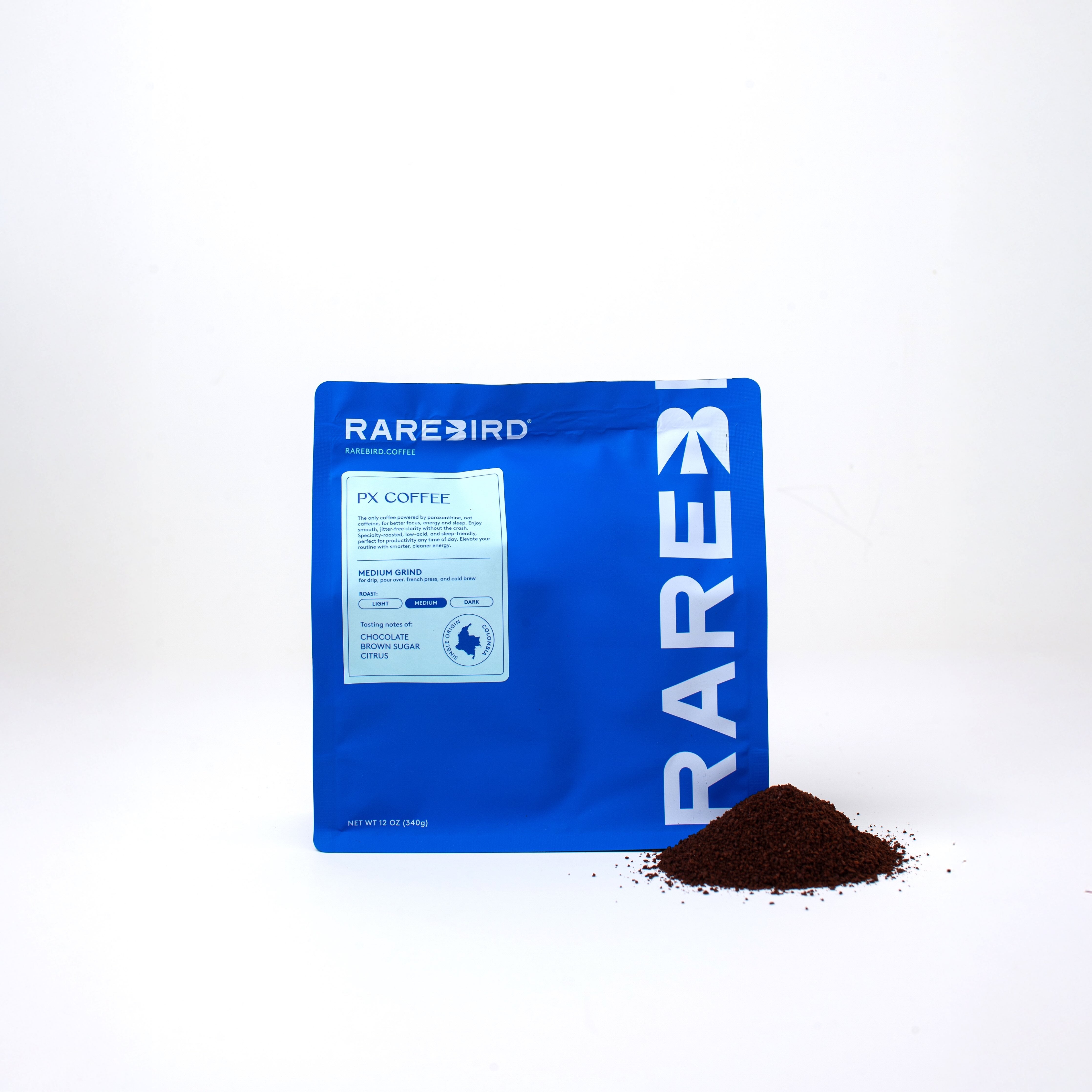


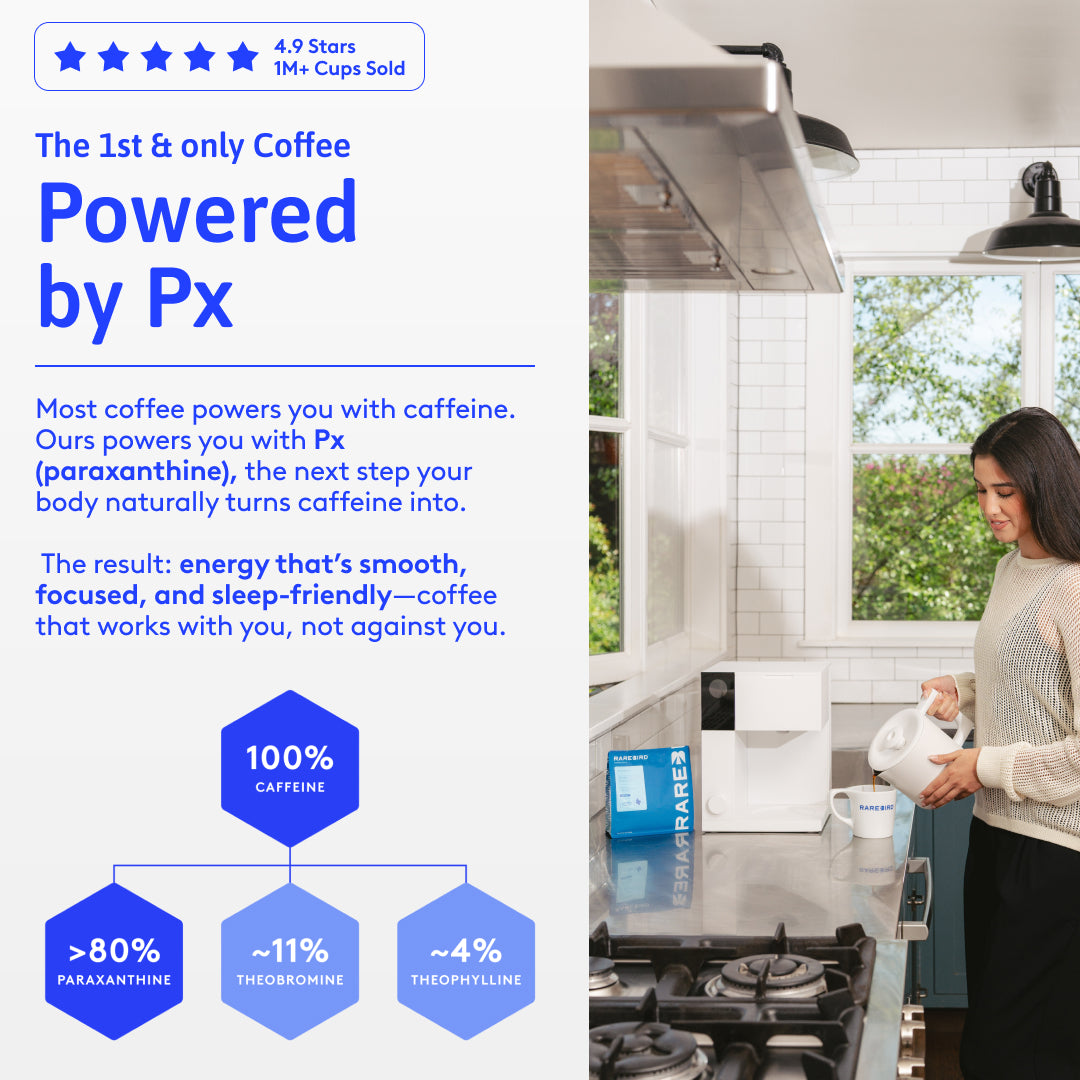
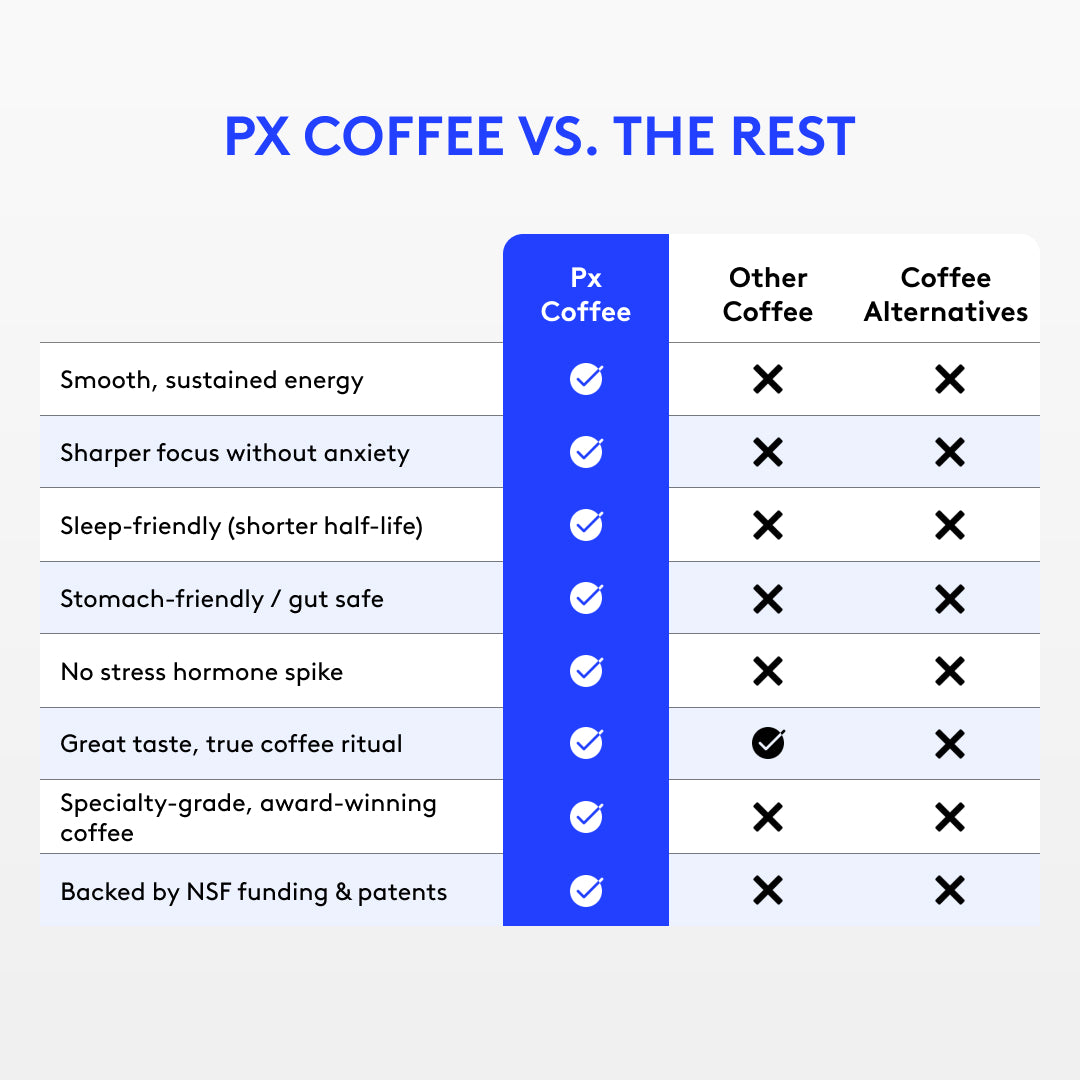

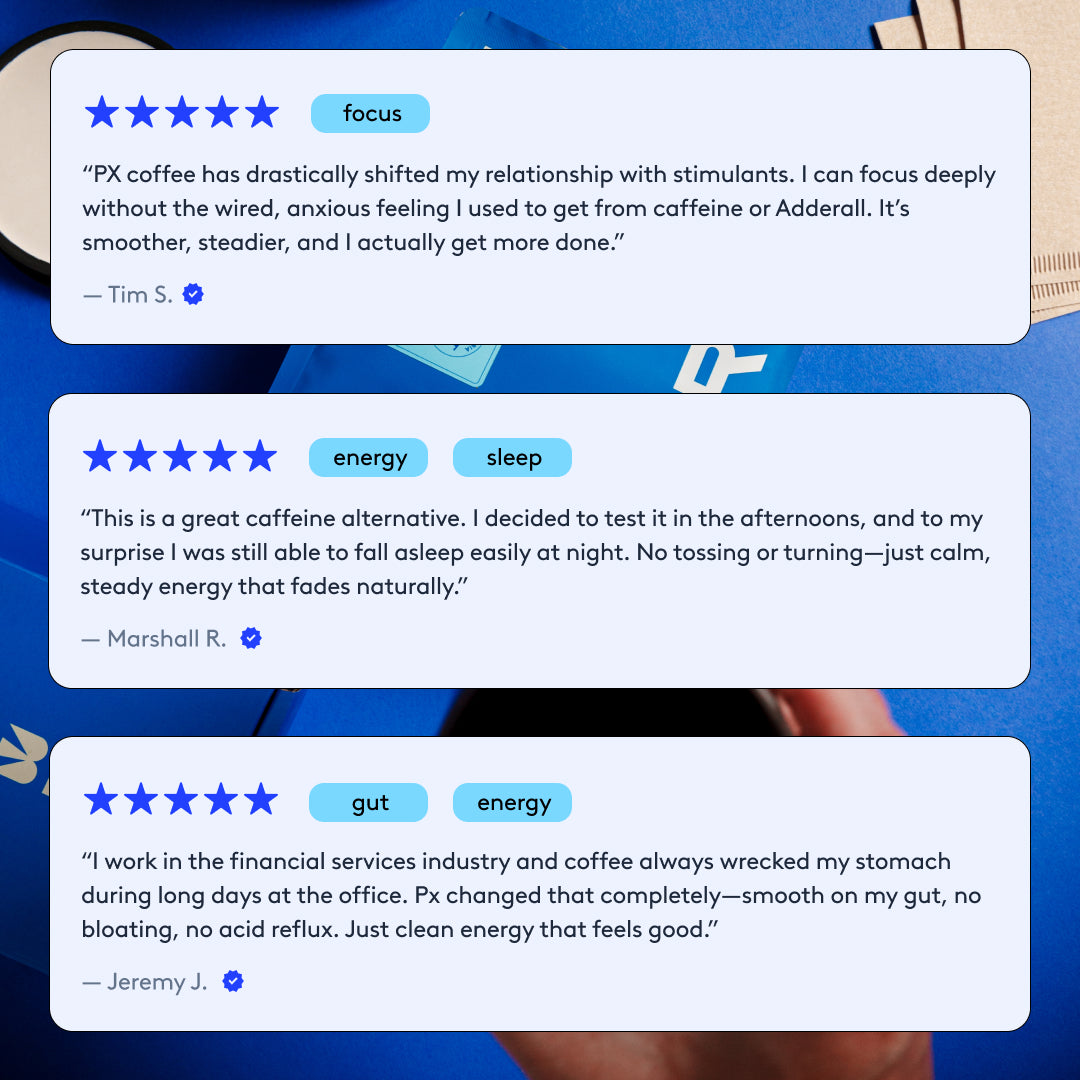


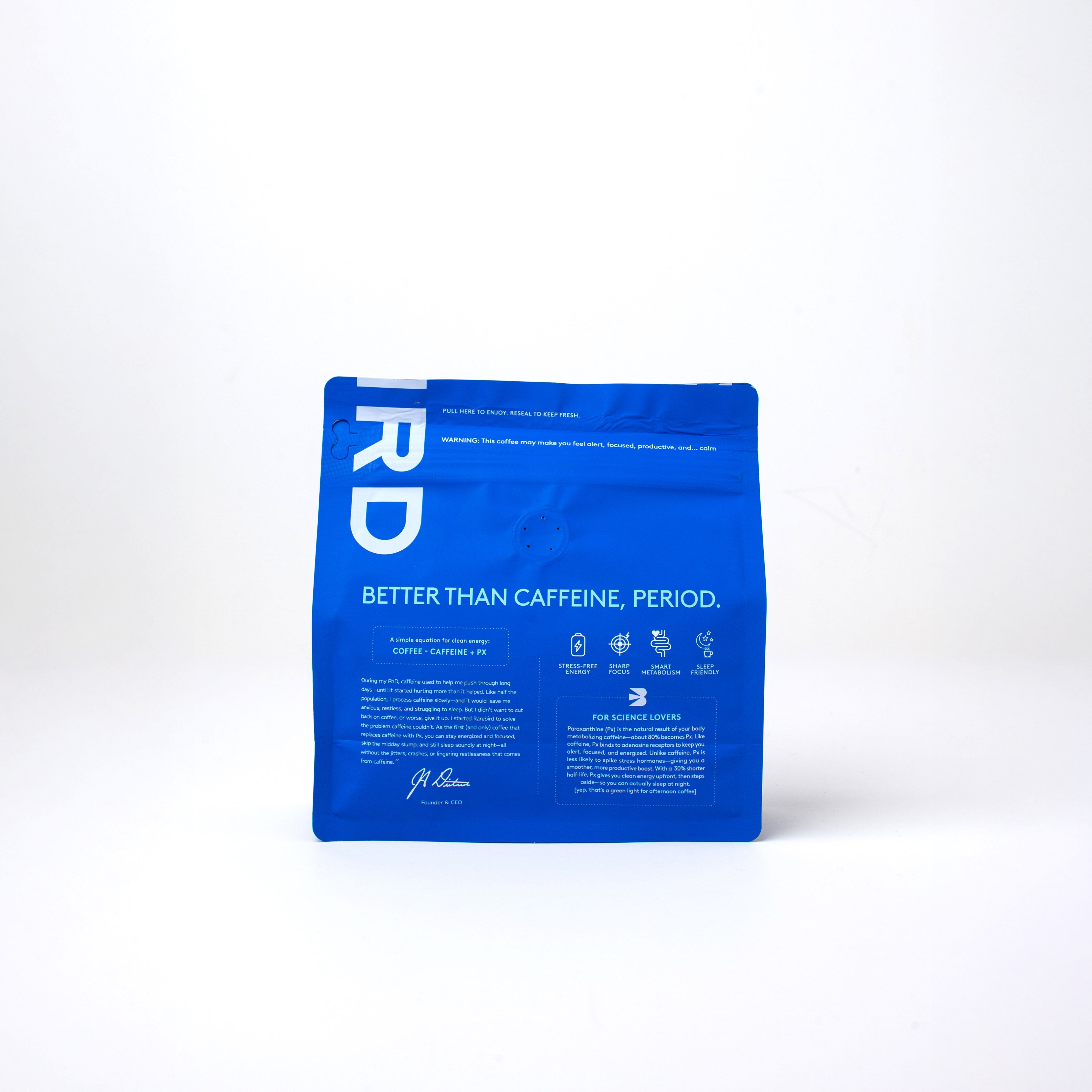

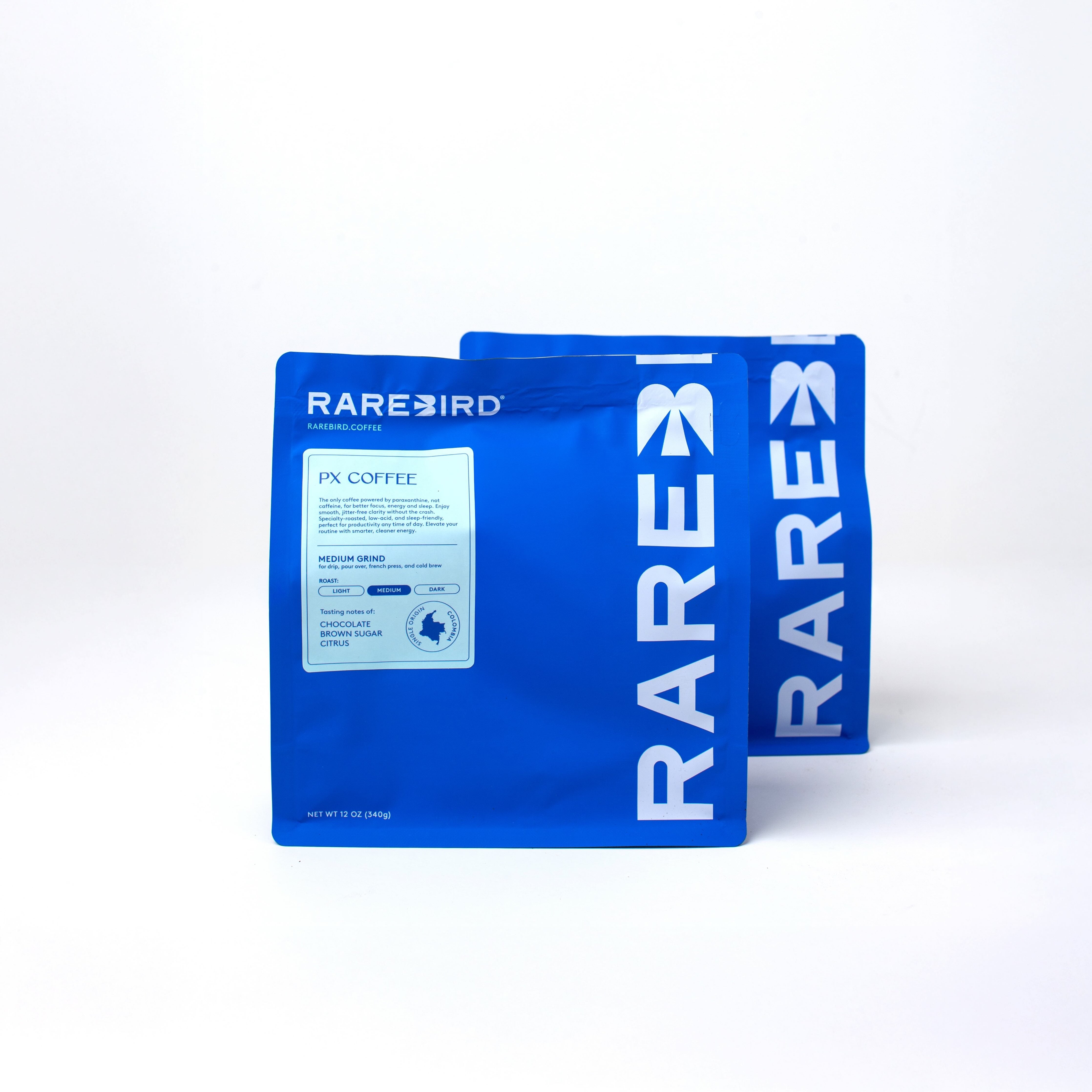
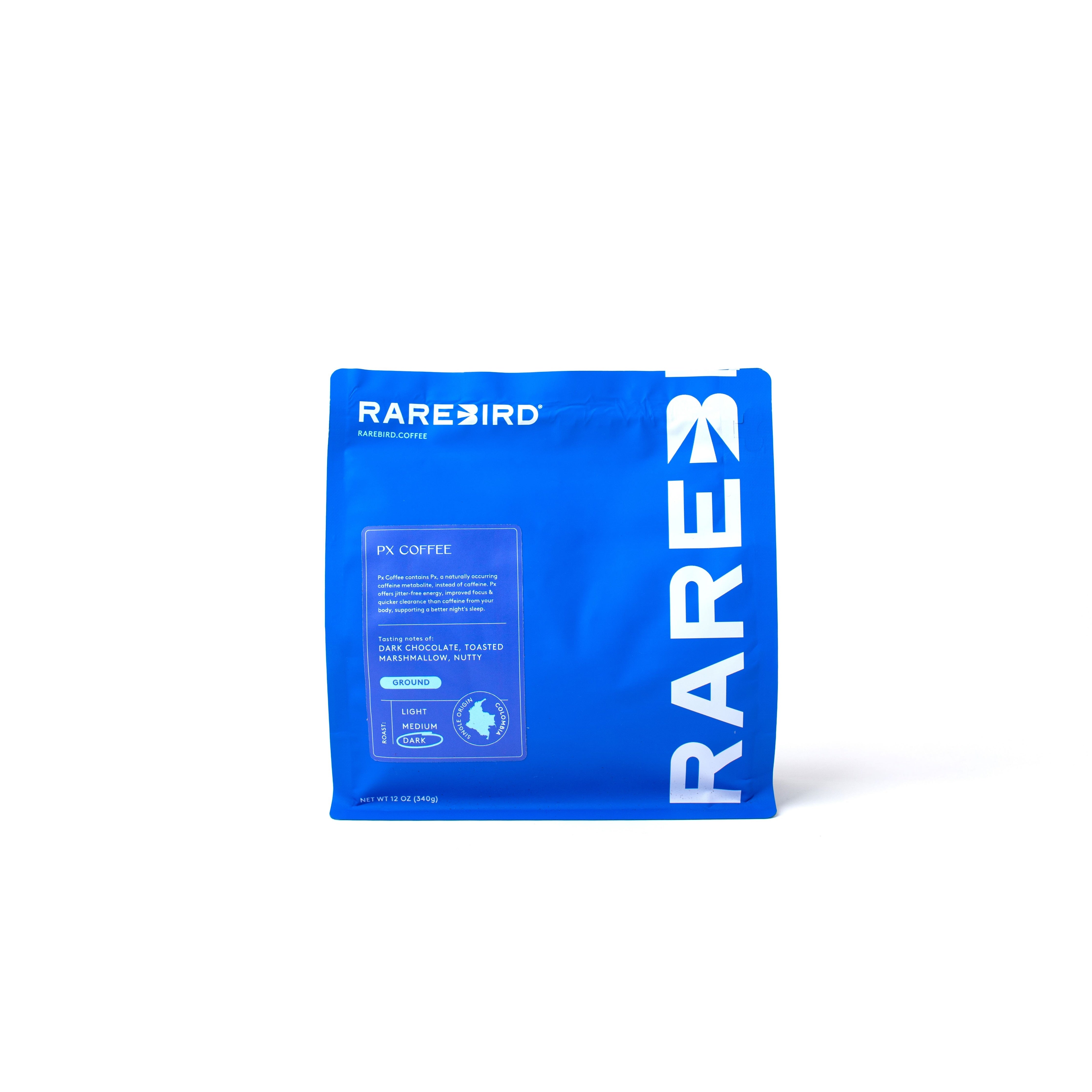



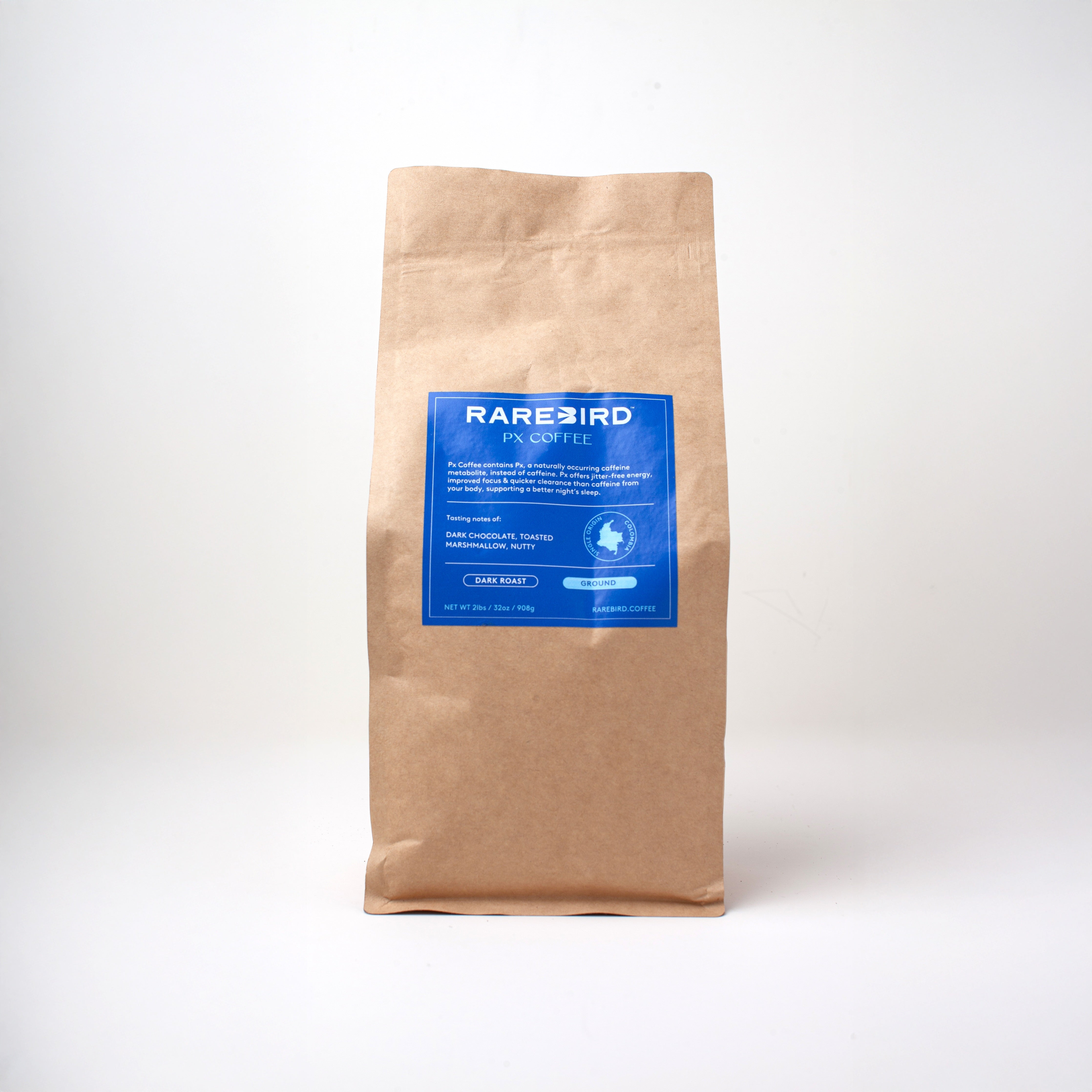
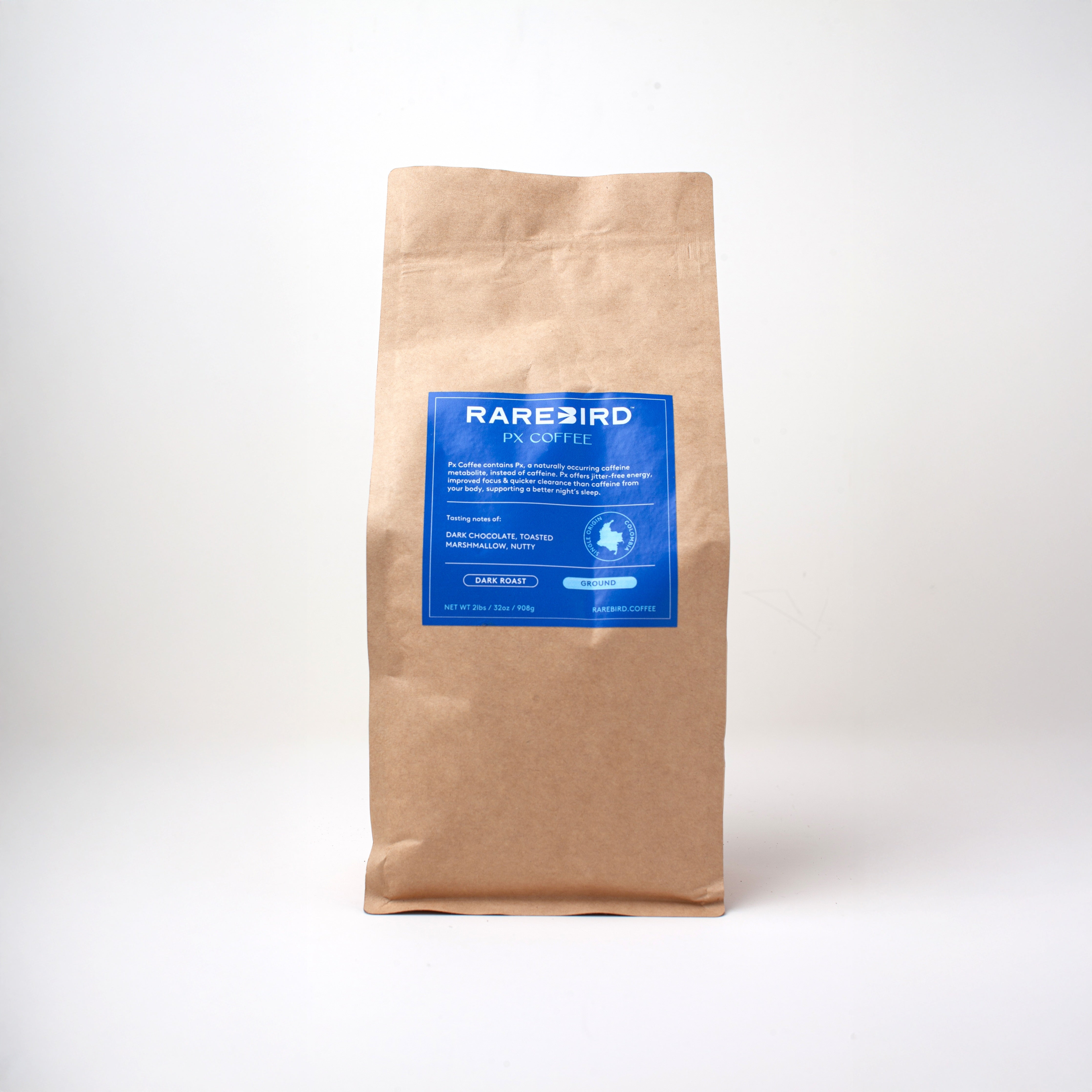
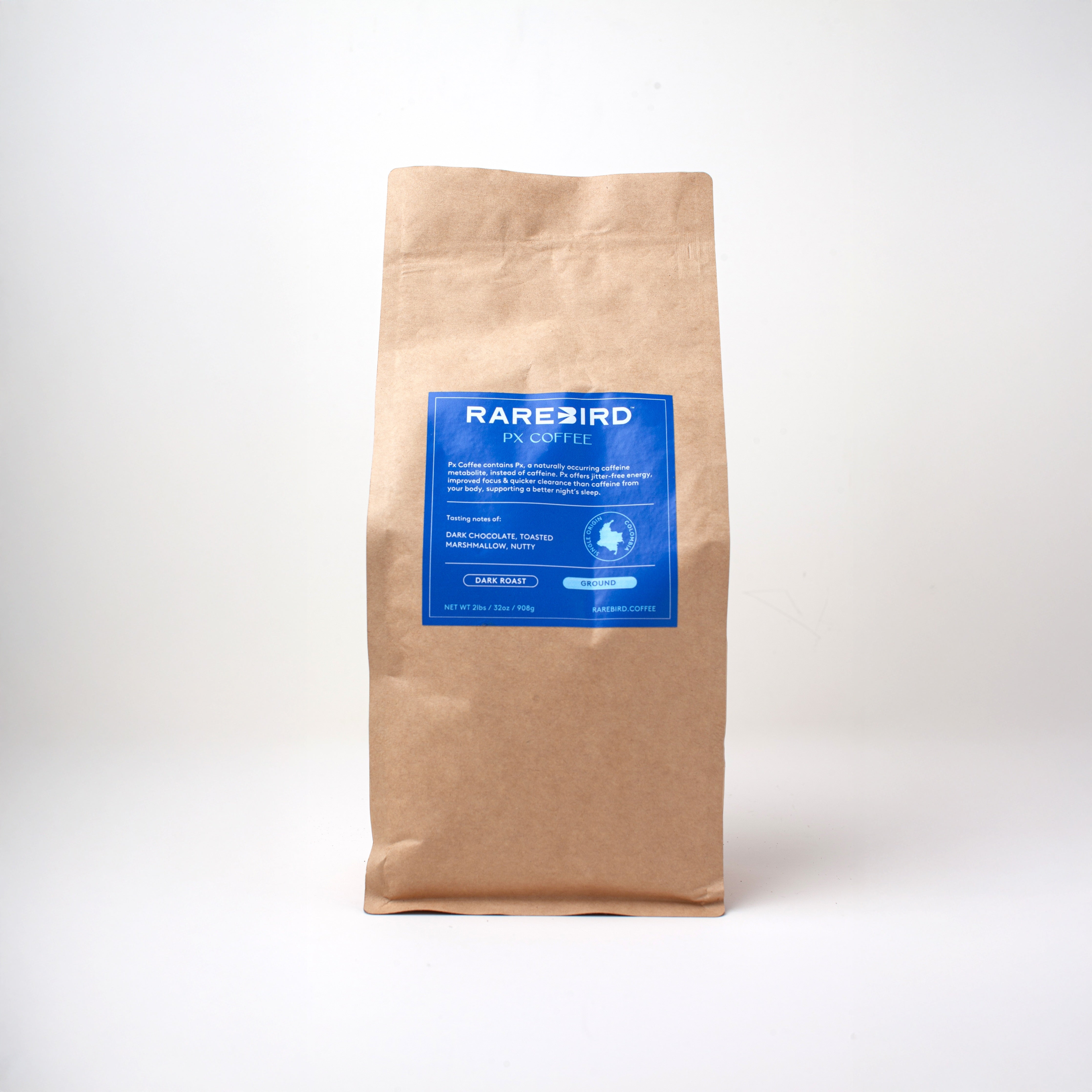
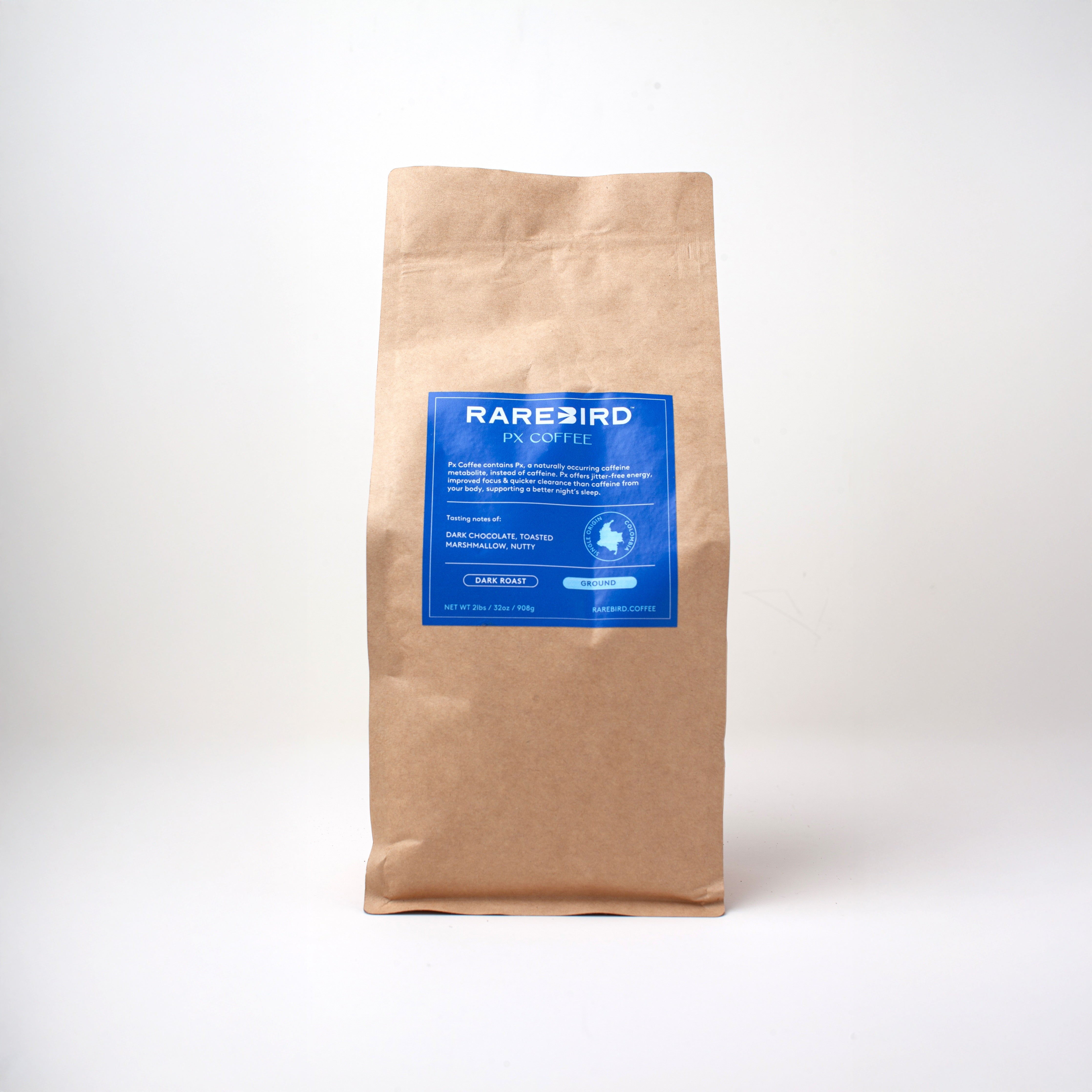





Share:
How Caffeine Overstimulates, Why Px Doesn't
Low-Acid Coffee: Fact or Fiction?